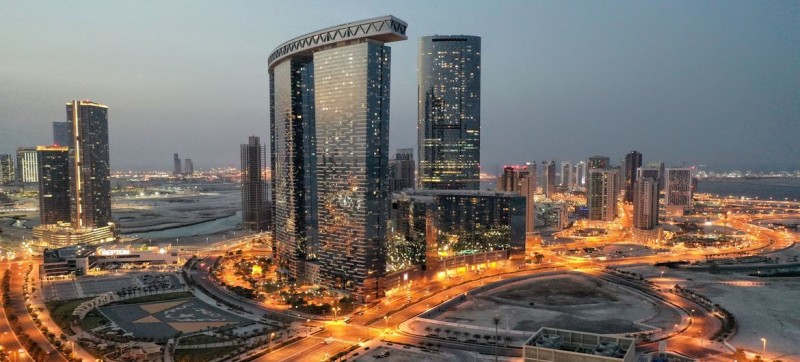A view on Abu Dhabi, in the United Arab Emirates The Secretary-General condemned on Monday the attacks on Abu Dhabi’s International Airport and the nearby Musaffah industrial area, which reportedly caused several civilian casualties and have been claimed by the Yemen-based Houthi rebel group, formally known as Ansar Allah. According to news agencies, the drone attack targeting an oil facility in the capital of the United Arab Emirates (UAE) killed three people. The attack at the city’s international airport sparked a fire. Several were also wounded, reportedly suffering minor to moderate injuries. In his statement, António Guterres, reminded that attacks on civilians and civilian infrastructure are prohibited by international humanitarian law.‘No military solution’
The Secretary-General also called on all parties involved in Yemen’s nearly six year conflict, to exercise maximum restraint and prevent any escalation amid heightened tensions in the region.
“There is no military solution to the conflict in Yemen”, he reiterated, as the UN has noted since the beginning of the war in 2015.
In that year, fighting intensified between a Saudi-led coalition backing the internationally-recognized Government – which includes the UAE – based in the south, and the Houthi armed movement, which still controls the capital Sana’a.
Mr. Guterres also urged the parties to engage “constructively and without preconditions” with his Special Envoy, Hans Grundberg, and his mediation efforts to advance the political process and reach a comprehensive negotiated settlement to end the conflict.
‘Genuine political will’ is key
Just last week, the Special Envoy told the Security Council that “genuine political will, responsible leadership and adherence to the interest of the entire population is needed” to end the fighting and forge a lasting peace.
In the meantime, the humanitarian crisis remains the worst in the world.
Currently, more than half the Yemeni population – some 16.2 million people – face acute hunger and 2.3 million children under five, risk malnutrition.
Back in December, the World Food Programme (WFP) warned that it is running out of funds to continue providing food assistance to 13 million Yemenis.
The agency said that, starting in January, eight million who were going hungry in Yemen would receive a reduced food ration, while five million others who were at immediate risk of slipping into famine, would remain on a full ration.
WFP needs $813 million to continue to assist the most vulnerable in Yemen through May.




Comments are closed.